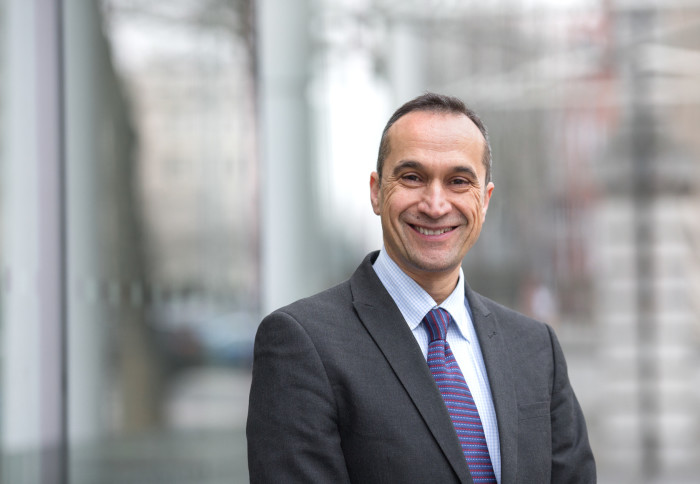“Confronting our history means we can move forward with pride”

Professor Nilay Shah, Chair of the History Group
Professor Nilay Shah, chair of Imperial’s new expert review into Imperial’s history and legacy, has set out his vision for the group’s work.
We don’t want to brush aside our history, but we do want to make sure we understand it and that we are celebrating the right parts of it today Professor Nilay Shah Chair of the History Group
Commissioned by Imperial’s President and Provost, the History Group will examine the history of the College through its links to the British Empire and report on the present understanding and reception of the College’s legacy and heritage in the context of its present-day mission. It will deliver an interim report in January 2021 with a final report expected by June 2021.
This week Imperial announced the first members of the group, which is made up of a wide group of academic and professional staff and students from across the College. External historical experts and other staff and student members are due to be confirmed in the coming weeks.
Professor Nilay Shah has talked about what he hopes will be achieved through the group’s work.
What will the group look at?
Our overall goal is to get a clearer understanding of Imperial’s history and legacy, and how that affects perception of the College today. We were founded in 1907, so naturally a lot of our focus will be on our links to colonialism and the British Empire, a period of history which many around the world find controversial. We want to get a full and frank account of our ties to the Empire, and consider how we can respond in a way that fits our modern values.
How will it do this?
We will start by collecting a solid body of evidence that will help us understand our place in history. This is not as easy as it sounds, as different parts of the College have quite disparate histories. There are pockets of knowledge around Imperial but there’s no one person or part of the College who knows all this stuff. Even the College Archives don’t capture everything. So we will be putting out a call for evidence from our community. I hope that this might throw up things we’d never known about before.
We also want to understand how the College is perceived – both today and historically – so we will be seeking the views of our staff, students, alumni and our external stakeholders. It’s important we understand the views of our community – which we fully expect to be wide and varied.
At the end of the review we will be making recommendations for action the College can take to acknowledge its history and address any issues that the research uncovers.
Does this mean Imperial is ashamed of its past, or trying to erase its history?
If anything, this is about being more transparent about our history. We don’t want to brush it aside, but we do want to make sure we understand it and that we are celebrating the right parts of it today. Confronting our history means we can move forward with pride.
There is no question that we will uncover things in our past that do not reflect how Imperial wants to be seen today. We should not shy away from that. But our mission is not entirely self-critical. We hope that we will also find historic contributions or discoveries from Imperial figures that might have been overlooked in the past. We want to make sure they get the prominence they deserve.
Will you be considering statues, memorials and the names of buildings?
Yes, certainly looking at that will be part of our work and we will be considering it carefully. There may be some historical names and faces around the College that no longer ought to be there. Some steps are already being taken, such as the Department of Earth Science and Engineering removing a bust of Henry De La Beche – a slave owner - from display. I know there are others we need to consider, and we will.
This is a good opportunity to think about whether there are some people we should be celebrating but currently aren’t - many of whom might be women or people from a BAME background. A separate group, chaired by Professor Sian Harding, will be considering how to best represent our community in our artwork in public spaces. The work of this group will naturally dovetail with the history and legacy review.
Article text (excluding photos or graphics) © Imperial College London.
Photos and graphics subject to third party copyright used with permission or © Imperial College London.
Reporter
Deborah Evanson
Communications Division